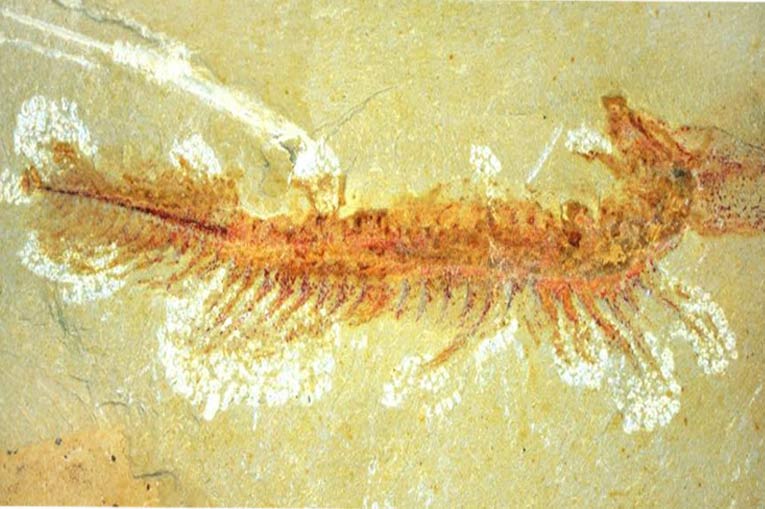Image Credit: Professor Derek Siveter, Oxford University.
A 525-million-year-old fossil found in China shows new evidence of how the earliest vertebrates evolved.
Researchers from China, Leicester and Oxford found the fossil, which for the first time shows the soft tentacles of primitive creatures called pterobranch hemichordates, which sheds new light on an important group of primitive sea creatures.
The relatives of these creatures still live in our oceans, including starfish and urchins among the 30 current species. Between 380 and 490 million years ago their forbears were much more common.
Pterobranches build a hard protective tube around their bodies, using tentacles to catch their food, usually plankton. Previous finds have only had the hard tube preserved, but this new find, at just 4cm long, is in exceptional condition showing 36 tiny tentacles.
Professor David Siveter from the University of Leicester's Department of Geology said: ''Amazingly, it has exceptionally preserved soft tissues - including arms and tentacles used for feeding - giving unrivalled insight into the ancient biology of the group.''
The team from Yunnan University and the Universities of Leicester and Oxford publish their results in the scientific journal Current Biology and have given the tiny creature an appropriate name reflecting its finding in Yunnan Province, China. They have called it Galeaplumosus abilus, meaning 'feathered helmet from beyond the clouds'; Yunnan means 'south of the clouds'.










